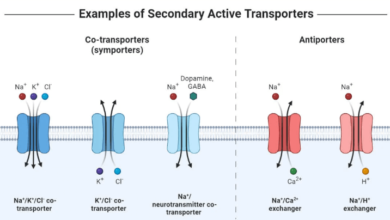Tech innovations revolutionizing cargo management and efficiency

It’s fascinating to see how technology is reshaping the cargo industry. Gone are the days when everything was managed with paper and pen. Remember those chaotic scenes in movies where people were running around with clipboards, trying to locate a specific container? Well, that’s becoming a thing of the past. The transition from paper to digital has streamlined processes in ways that seemed unimaginable just a few decades ago, thanks in part to innovations from companies like InsTech.
Nowadays, every step of the cargo management process can be tracked and recorded digitally. This shift not only saves time but also reduces human error. Digital records are easier to search, sort, and analyze. Plus, they can be accessed from anywhere in the world, making it simpler for companies to manage their operations across multiple locations. It’s like having a superpower at your fingertips!
Tracking shipments in real-time is a game-changer
Imagine being able to know exactly where your shipment is at any given moment. Sounds like magic, right? But thanks to real-time tracking technology, this is now a reality. Real-time tracking allows companies to monitor their shipments as they move through the supply chain. This level of visibility helps prevent delays and ensures that goods arrive on time.
Not only does real-time tracking enhance efficiency, but it also improves customer satisfaction. When customers can track their orders, they feel more in control and are less likely to become frustrated if there are delays. It’s like having a GPS for your packages. And let’s be honest, who doesn’t love knowing exactly when their package will arrive?
Automation boosts efficiency and reduces errors
Automation is another game-changer in the world of cargo management. By automating repetitive tasks, companies can significantly boost their efficiency and reduce the likelihood of errors. For instance, automated sorting systems can quickly and accurately sort packages based on their destination. This reduces the need for manual sorting and ensures that packages are sent to the correct location faster, often using advanced equipment such as a Container inspection machine.
Moreover, automation can also help with inventory management. Automated systems can keep track of stock levels and alert managers when it’s time to reorder. This helps prevent stockouts and ensures that there is always enough inventory to meet demand. It’s like having an extra set of hands (or maybe even a whole team) working behind the scenes to keep everything running smoothly.
Read also: Top Transportation Trends for 2024
Smart warehouses are the future
The concept of smart warehouses is truly revolutionary. These high-tech facilities use advanced technologies such as Internet of Things (IoT) devices, robotics, and artificial intelligence (AI) to optimize operations. In a smart warehouse, everything is connected and communicates seamlessly. This ensures that all processes are as efficient as possible.
For example, IoT devices can monitor temperature and humidity levels to ensure that sensitive goods are stored under optimal conditions. Meanwhile, AI algorithms can analyze data to predict demand and optimize stock levels. And let’s not forget about robots – these handy machines can handle heavy lifting and transportation tasks, reducing the risk of injury for human workers.
Challenges and solutions in modern cargo management
Of course, with all these advancements come new challenges. One of the biggest issues is cybersecurity. As more systems become interconnected, the risk of cyberattacks increases. Companies need to invest in robust security measures to protect their data and ensure that their operations remain secure.
Another challenge is the cost of implementing new technologies. While these innovations can lead to significant long-term savings, the initial investment can be substantial. Companies need to carefully consider their budgets and plan their investments strategically.
Despite these challenges, the benefits of modern cargo management technologies far outweigh the drawbacks. By embracing these innovations, companies can improve their efficiency, reduce errors, and provide better service to their customers. It’s an exciting time for the industry, and there’s no telling what amazing advancements we’ll see next.
In conclusion, technology is transforming cargo management in ways we could have only dreamed of a few years ago. From digital records to real-time tracking, automation, and smart warehouses – the future is bright for this industry.







